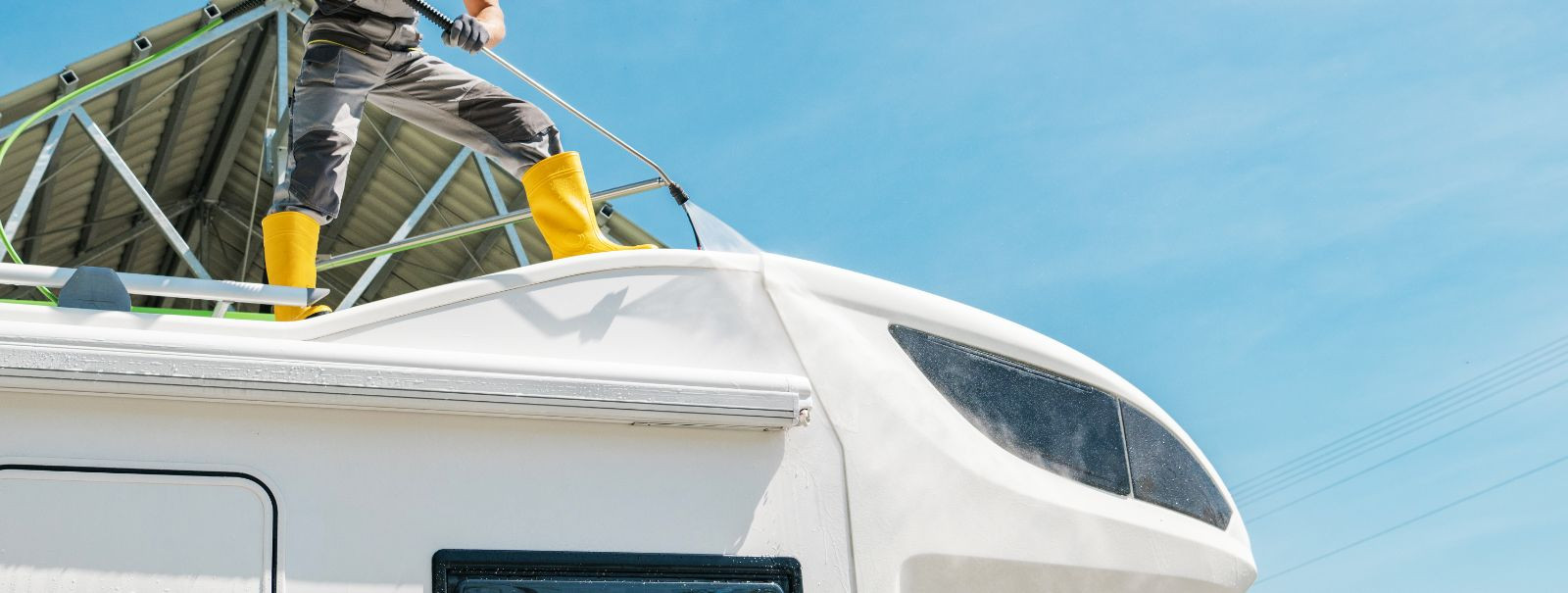The ultimate guide to campervan maintenance
Maintaining your campervan is crucial to ensuring a safe, enjoyable, and uninterrupted journey. It's about more than just keeping your vehicle looking good; it's about preserving its functionality, reliability, and extending its lifespan. This guide will walk you through the essential maintenance tasks that every campervan owner should know.
Regular Maintenance Checks
Regular engine checks are vital for the smooth operation of your campervan. This includes checking the oil level, replacing the oil filter, and ensuring that the engine coolant is at the correct level. It's recommended to change the oil every 5,000 to 7,000 miles to keep the engine running smoothly.
Tires are your direct contact with the road, and their condition is paramount for safe travel. Check tire pressure regularly, look for signs of wear or damage, and rotate them according to the manufacturer's recommendations. Don't forget to check the spare tire as well!
The battery is the heart of your campervan's electrical system. Keep the terminals clean and check the battery charge level frequently. If your campervan is not in use for an extended period, consider using a trickle charger to maintain the battery's charge.
Brakes are critical for your safety on the road. Check the brake pads for wear and ensure that the brake fluid is at the recommended level. If you notice any changes in braking performance, have your brakes inspected by a professional immediately.
Water systems in your campervan need regular inspection to prevent leaks and water damage. Check all connections, hoses, and the water pump. Clean the water tank periodically to prevent the buildup of bacteria and ensure the quality of your water supply.
Seasonal Maintenance Tasks
Winterizing your campervan is essential if you live in a cold climate. This includes adding antifreeze to the water systems, checking the insulation, and ensuring that your heating system is in good working order. It's also a good idea to protect the exterior with a suitable cover.
Before the summer season begins, check your air conditioning system, clean the air filters, and test the refrigerator and other appliances to ensure they are ready for the heat. Applying a UV protectant to the exterior can help prevent sun damage.
Interior Maintenance
Keeping the interior of your campervan clean not only makes for a more pleasant environment but also helps to maintain the materials. Use appropriate cleaners for different surfaces and apply protectants to prevent fading and wear.
Regularly check and maintain the appliances in your campervan, including the stove, oven, refrigerator, and heating system. Follow the manufacturer's instructions for cleaning and maintenance to ensure they remain in good working condition.
Upholstery and bedding should be cleaned regularly to prevent odors and stains. Consider using protective covers and wash them frequently. Inspect for signs of wear and address any issues promptly to avoid further damage.
Exterior Maintenance
The exterior of your campervan is exposed to the elements, so regular cleaning and waxing are important to protect the paintwork. Check for scratches or dents and repair them to prevent rust. Washing the campervan after trips, especially if you've been near the sea or on salted roads, can prevent corrosion.
Inspect the sealants around windows, doors, and the roof regularly for cracks or gaps. Reapply sealant as needed to prevent water ingress, which can lead to costly damage.
The undercarriage of your campervan can accumulate dirt, grime, and salt, leading to rust. Regular cleaning and applying a rust prevention product can help protect the undercarriage from corrosion.
Electrical Systems and Solar Panels
Ensure that all electrical connections are secure and that the wiring is in good condition. Check the fuses and replace any that are blown. If your campervan is equipped with solar panels, keep them clean and check the connections to ensure they are charging the batteries effectively.
Solar panels require little maintenance, but it's important to keep them clean for optimal performance. Remove any debris and clean the surface with a soft cloth and appropriate cleaning solution.
Emergency Preparedness
Always have a well-stocked first aid kit in your campervan, along with safety equipment such as fire extinguishers, reflective vests, and warning triangles. Regularly check the expiration dates and condition of these items.
Carry a basic toolkit and familiarize yourself with common emergency repairs that you can perform on your campervan. This includes changing a tire, jump-starting the battery, and patching up minor leaks.
Professional Maintenance and When to Seek Help
Be aware of any unusual noises, smells, or performance issues with your campervan. These could be signs that something is wrong and may require professional attention.
When it's time for more complex maintenance tasks or repairs, choose a reputable service provider. Look for certified technicians who specialize in campervans and have a track record of quality workmanship.






Comments (0)